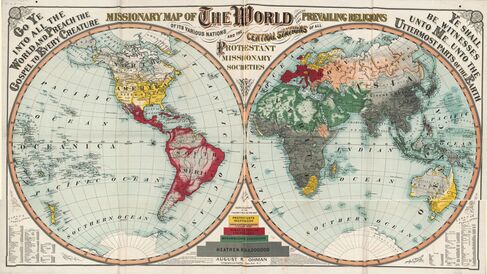to
Faculty of Divinity (Runcie Room) and online

About
Convened by Dr Soumen Mukherjee (Smuts Visiting Research Fellow in the Centre of South Asian Studies), Dr Ankur Barua and Dr Hina Khalid.
Overview
This interdisciplinary symposium will explore religious processes in early modern and modern South Asia, foregrounding the dynamics of the “inter” on the “inter-religious” landscapes of South Asia in the 18th, 19th, and 20th centuries.
“Interdisciplinarity” is often invoked as a mantra. Yet the institutional frames of academic spaces do not readily allow or enable conversations across the category of “religion”. The discipline of “Hindu Studies” would not, generally speaking, encompass the study of Islamic theology and socio-religious life in South Asia or Hindu-Christian relations. “Islamic Studies” does not usually extend to a study of the religious imaginations and the social locations of Indian Muslims. To further complicate matters, “religion” itself is often received through “nation-state”, so that “religion” and “nationalism” are lined up in an isomorphic mapping: “India under Hindu Studies”, “Bangladesh under Islamic Studies”, “Sri Lanka under Buddhist Studies”, and so on.
Join us online and in Cambridge to explore types of real-world “entanglements” that may not conform to these logics of nation, language, and region. Registration options (free) are shown beneath the schedule.
Schedule
0900 Opening remarks
0910 Keynote address: Professor Peter van der Veer
Professor Van der Veer is Emeritus Director of the Max Planck Institute for the Study of Religious and Ethnic Diversity, Göttingen, and Emeritus Distinguished University Professor at Utrecht University
0955 Break time1010 Panel 1 | The study of religion in South Asia: key issues and concepts
-
The Oriental Christ and Traditions of Interfaith Translationality in 19th century Bengal | Anindya Purakayastha
-
Ismailis and Sufis: Islam and the Discovery of India in French Orientalism | Michel Boivin
-
Seelsorger: Indic religions in the light of Carl Jung’s search for soul cures | Claudia Richter
-
“No doubt I have died myself, ten thousand times before”: rebirth doctrine in late nineteenth-century literature | Sarah Shaw
-
The Schlegel brothers’ religious and philological re-shaping of the myth of India | Tanvi Solanki
1315 Panel 2 | RIssues in cross-cultural relations and soteriology: from socio-religious reform through religious transformation
-
Theological and soteriological imaginations of Pir Sadardin | Imran Visram
-
Querying cross-cultural relations and gender discourses in a 17th century Persian retelling of Śiva Purāṇa | Pranav Prakash
-
The metaphysics of “reform” in Kazi Nazrul Islam and Rokeya Sakhawat Hussain | Hina Khalid
-
Forging new roles: women of the Ramakrishna-Vivekananda tradition, 19th and 20th centuries | Arpita Mitra
-
Practical spirituality and religious transformations: transformative faith, a new Upanishad of life and an ecology of hope | Ananta Kumar Giri
1515 Panel 3 | Gurus, pirs and religious experience: interreligious exchanges and global pathways
-
Spiritual experience and the Sufi Pir: exploring the debate on the role of Sufi masters in South Asia (18th–20th Centuries) | Md Sajjad A Rizvi
-
The Alid paradigm: cross-sectarian and cross-religious conceptions of religious authority | Teena Purohit
-
The “Theology of Light” of Śivanārāyaṇa Paramahaṃsa (c. 1840–1909) and his disciples | Knut A Jacobsen
-
Disrupting rupture: Sādhana, subjectivity, and sediments of time in Bengali Vaishnavism | Lucian Wong
-
Early global gurus: a comparative study of the work and reception of Swami Vivekananda and Paramahansa Yogananda in America | Jeffery D Long
1700 Closing remarks
Practicalities
This event is hybrid, with the possibility of online attendance
Practicalities
Please register for the livestream and to attend online, using the links below:
Register to join online (via Teams)
Register to attend in Cambridge (forms.office.com)
Those in Cambridge may join us at the Faculty of Divinity for the whole day or a relevant panel.
Acknowledgements
This activity is supported by the Spalding Trust and a small grant from the Cambridge Interfaith Research Forum. The Cambridge Centre of South Asian Studies is managing registration for online attendees.
